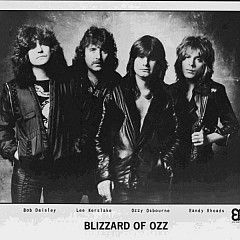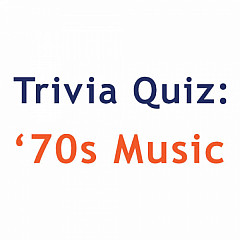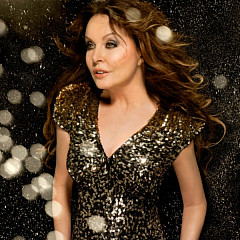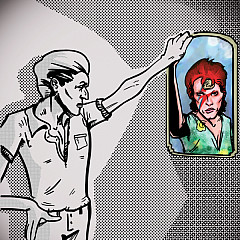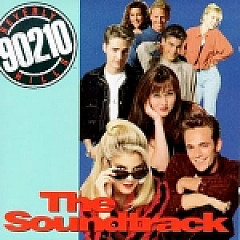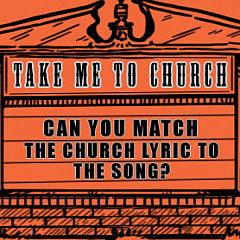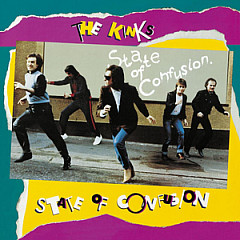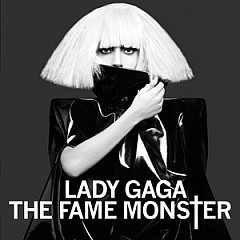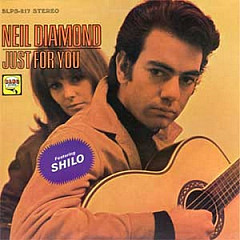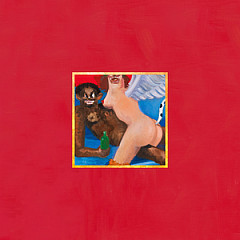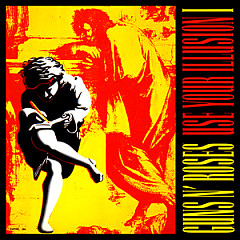Growing up in Calgary, it was Canadian artists like Shania and Randy Bachman that lit her fire, and after attending the Berklee School of Music in Boston, John Mayer became her musical exemplar. (Mayer did just two semesters at Berklee, but he holds serious sway on the campus, often returning to help out the students.)
Moving to Nashville put Lindsay in the big leagues, and now she's trying to break into the starting lineup. At some point, an album will appear (she's signed to Stoney Creek Records), but for now she's on the road writing new songs and refining her old ones, which often show up on iTunes and YouTube. We spoke with her about her Nashville experience and her creative process.
 Dan MacIntosh (Songfacts): What kind of sets you apart from a lot of country artists is that you are a guitarist.
Dan MacIntosh (Songfacts): What kind of sets you apart from a lot of country artists is that you are a guitarist.Lindsay Ell: I am.
Songfacts: Do you feel, as a female musician, that you're breaking ground by promoting your musicianship as well as your skills at singing and songwriting?
Lindsay: I do. It really baffles my mind sometimes when you look at specifically female artists in country music, how there aren't more female guitar players who really play lead guitar. And there aren't many of us. So I definitely do want to sort of lead them and show that girls can play guitar, too.
Growing up, I had my role models of female and male guitarists. But especially strong female role models, like Bonnie Raitt.
Songfacts: That's the only example I could really think of.
Lindsay: There's Jennifer Batten, there's Orianthi, there's Susan Tedeschi, there's a lot of them. Even Sheryl Crow, although she's more bass. But still, just those strong women who are very influential and really progressive musically, but have just such an aura about them. So I've definitely taken that into account and strive to put that forward in my music.
Songfacts: Do you run into people that are surprised that you can play like you can?
Lindsay: All the time.
Songfacts: There's still that stereotype.
Lindsay: I think there always will be. And part of it I find endearing, because a lot of times I'll walk onstage with an electric guitar and see people rolling their eyes, "Here we go again." And then when I actually dig into something, they're like, "Oh, she can play a little bit."
And I will say that moving to Nashville was the most humbling experience ever, because you just see the most incredible musicians left, right, and center. They totally knocked me off of my socks. I was like, Well, this is how you really play guitar. So I'm always trying to be better. But I love having that surprise element in a show where I can walk out on stage and maybe change some people's perspectives.
Songfacts: So, as a musician, when you write songs, does it start always with the music?
Lindsay: Usually. Because I'm such a guitar nerd, I usually start a song with a riff or a melody idea. And then sometimes I have a title or a topic that I want to say or just a line, and then the rest of the song just falls out from that. But I'm definitely more musically inclined.
Songfacts: Can you think of an example where it started with the lyrics first?
Lindsay: Yeah. Piano was actually my first instrument, so I started playing piano when I was six years old and picked up the guitar when I was eight. So writing on piano, I write completely differently than I do on guitar because I just think about the instruments in different lights.
With the lyrics, sometimes I'll write kind of poetry, for lack of a better word. Just free verse, and then I pick out cool parts of it and get a handful of lyrics. Then I just find music that fits it.
Songfacts: Can you tell me about two or three songs that you're most proud of and why you like them?
Songfacts: More so than we do over here?
Lindsay: They could hardly speak to you when you're at the merch table, but by the second chorus they'd already be singing along and doing actions. It just amazed me how far they came in the period of, like, three minutes.
Songfacts: So what is the song about?
Lindsay: "Don't Take Me Home" is about just being in the moment. Onstage every night I lock into that groove, and it's like, I don't want to go home, I just want to stay right here in this moment. So I could almost sing it to the crowd, sing it to the audience.
Songfacts: Is that where you're most comfortable, onstage?
Lindsay: It is. There's so many different aspects of the music industry: being a songwriter, being a studio musician and playing on stage. But onstage I feel it's where all the worlds morph into one and it all comes together. Being able to sing songs that you've wrested blood, sweat, and tears over and crafted and be able to sing them to an audience is so rewarding, and then to have them sing them back to you or applaud, it's amazing.
Songfacts: So, give me a few more examples of songs that you really like.
Lindsay: Absolutely. I also wrote a song called "What." It speaks of getting out of a relationship and having guy/girl, whoever it may be, change their mind a few weeks later and try to get you back.
Songfacts: Is this a personal experience?
 Lindsay: Perhaps. I mean, it might have a little personal experience in there. But as a female songwriter I walk that line between not being too abrasive, but still being strong as a girl, and not being too victim, but kind of morphing all those wheels together. It can be a hard thing to do sometimes, or to figure out how you want to say what you want to say. And so "What," I find, articulates perfectly the feeling of, "No, I'm not going to stand for that." It's like the Shania thing, "Any Man of Mine." I'm not going to be treated like that.
Lindsay: Perhaps. I mean, it might have a little personal experience in there. But as a female songwriter I walk that line between not being too abrasive, but still being strong as a girl, and not being too victim, but kind of morphing all those wheels together. It can be a hard thing to do sometimes, or to figure out how you want to say what you want to say. And so "What," I find, articulates perfectly the feeling of, "No, I'm not going to stand for that." It's like the Shania thing, "Any Man of Mine." I'm not going to be treated like that.Songfacts: It's difficult, because there's some artists like Tori Amos that are so aggressive that men have a difficult time relating to that.
Lindsay: Completely.
Songfacts: So is sounds like you need to be careful because you don't want to alienate the male audience.
Lindsay: Yeah. And that's why I say it's a fine line. Because you need to be yourself first and foremost. But then there's so many different ways you can say the same thing, so it's figuring it out. You don't want to say it too harsh, but you don't want to say it too sweet.
Songfacts: Did you find yourself being a real harsh editor of yourself when you wrote it?
Lindsay: I'm an incredibly harsh editor. I am the epitome of a perfectionist and I hate it. But that's why co‑writing is a wonderful thing. Because sometimes when I'm writing by myself, I'll just edit so much to the point where I don't even know what's up anymore. It's like, left, right, left, right, I don't know. So co‑writing is nice, because you can get a few friends that you trust and respect in the same room, and they know me and they know what I'm going at. So they're just another objective mind being, like, "Well, you're right, but what if we looked at it this way?" And so they just help me sort of keep on a clear perspective.
Songfacts: I got a chance to talk to Rosanne Cash last week. A brilliant songwriter. And she said something to me that really stuck with me. She says when she is driving around in a car and a song comes on the radio, and a weak lyric is sung, she'll say, "Man, why did they settle for that? Why didn't they work at it?" And I would think as a songwriter the last thing you would want is for somebody to say, "This is a really good song, but there's a couple of lines in there that you could have really, if she would have taken her time."
Lindsay: Completely. You know, when you finish a song, whether it be a three‑hour write, a four‑hour write, or two‑month write, however long it takes to finish, a song is never done, I feel. There's a point in the studio once you've cut it for a record and it's recorded that's kind of a finishing checkmark. But until that point you can re‑edit and edit, and sometimes one word will make the biggest change or a stance of a word will make the biggest change. So, yeah, editing is a wonderful thing.
Songfacts: Who are some of your songwriting influences?
Lindsay: I started songwriting when I was really little because of Randy Bachman in the Guess Who and BTO. Those early songs like "American Woman" and "Takin' Care of Business," "These Eyes," and "You Ain't Seen Nothing Yet."
Songfacts: They still resonate.
Lindsay: Exactly. Randy was such a proponent of finding that hook and making sure every way it's looked at is strengthening it. So he fostered a really good skill set when I was young. But songwriters that I look up to are like Joni Mitchell and The Beatles. And I'm probably the biggest John Mayer fan you're ever going to meet.
Songfacts: And he's a guitarist, too.
Lindsay: He's a guitarist. And watching the way he writes a song and the way he can say something in a contemporary environment and mold together blues and pop and still say what he wants to say in such a creative way is amazing.
Songfacts: Do you think he's underrated because people tend to read the gossip column stuff about him, and they miss the artist?
Lindsay: I think so. I think people who are musically inclined can see past all that gossip, because I clearly do. And I look up to him so much. But I hate that for him, because I think he is completely brilliant and he is one of a kind in that resort.
March 30, 2015
More Song Writing

